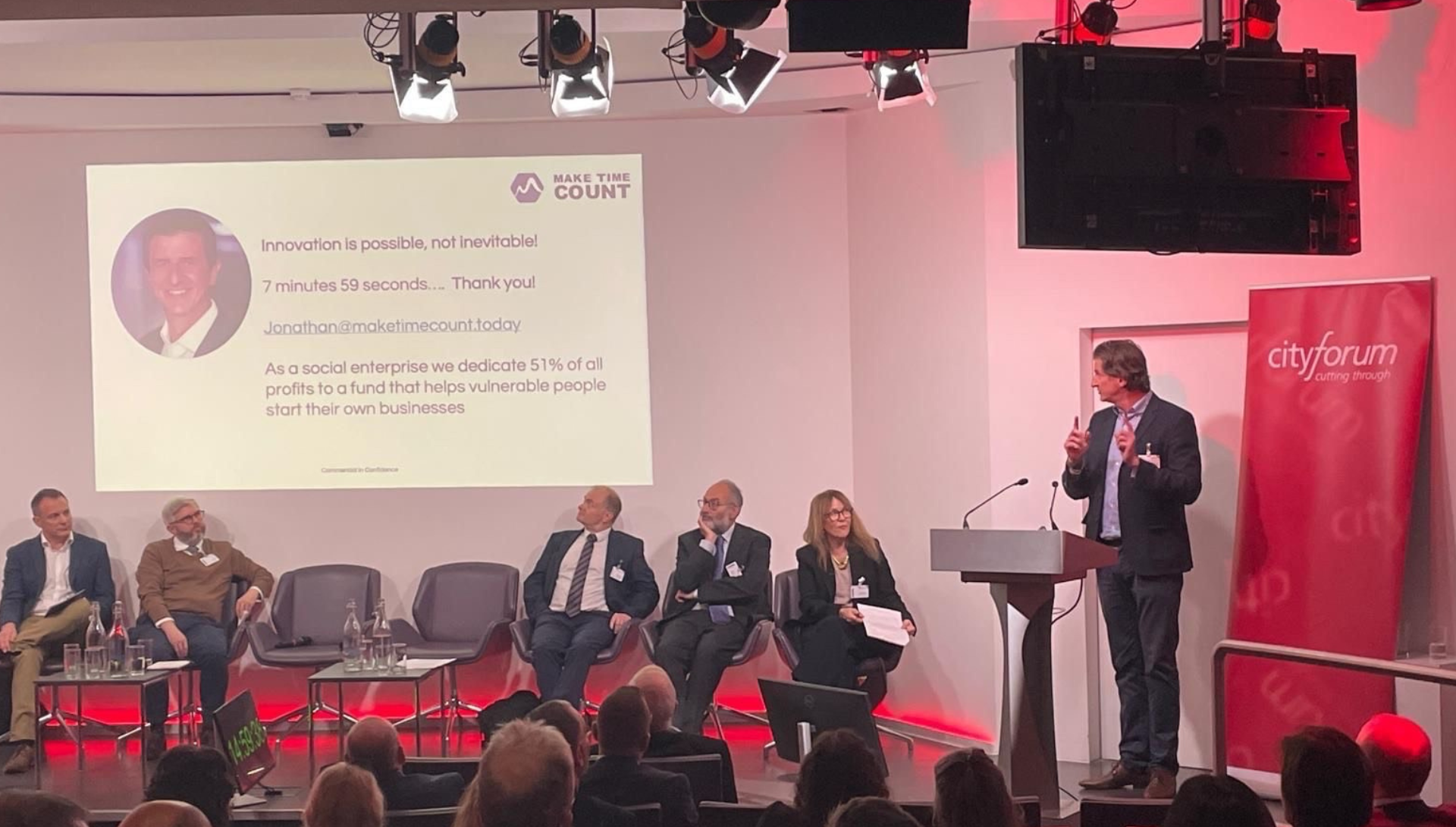
A packed auditorium at the BT Tower. A City Forum roundtable, entitled “Transforming Criminal Justice, people, prevention, prisons.”
It seemed the day had been written for the challenges Make Time Count has been addressing. From the opening remarks given by Sir Craig Mackey on whether the criminal justice system was fit for purpose, through Professor Nick Hardwick highlighting the seemingly inevitable upward trend in prison numbers to representatives from amazing charities, such as Standout and the Oswin project, talking about the great work they do.
We shared a distinguished panel entitled “the future reimagined”. Our presentation was to talk about what it’s like to actually try and drive innovation.
We started by describing how Make Time Count was forged from “an utter sense of shock at how the system doesn’t work”, we outlined our pedigree for innovation through awards won since 2020.
Our InnovateUK sponsored project showed how a saving of 20 hours per case added up to almost £300 million saved across the criminal justice system. The wider £1 billion+ business case for society was highlighted, a no brainer right?
However, we had to admit, despite all the advantages on offer, we hadn’t achieved the penetration we wanted. Two years spent waiting for our key client to make a decision, despite the savings potential and improved service.
We quoted the Met Commissioner, from a recent presentation lamenting “there is no investment in joining up services”, precisely what we offer. The deputy commissioner adding that “collaboration on IT is woeful”.
What’s Needed for Innovation in Criminal Justice?
Our presentation outlined five key requirements to drive meaningful change:
- Bold, Fearless Leadership: Now is no time for complacency; visionary leaders are needed.
- A National Approach: Effective solutions require coordinated, country-wide implementation.
- Avoid Redundancy: Focus on existing, effective solutions instead of reinventing the wheel.
- Resource Allocation: Support business cases that free up resources for impactful innovation.
- Reduce Bureaucracy: Streamline processes to speed up adoption and implementation.
A Frustrating Reality with Enormous Potential
The questions to the panel reflected our collective frustrations. Why is innovation so difficult, why is the pace of change so slow? I repeatedly referred back to the bullets above. Literally head in hands, While it is frustrating, the potential benefits show the power of driving change in the criminal justice sector.
Remember “innovation is possible, not inevitable”.
A recording, post event, of my presentation is available here.
